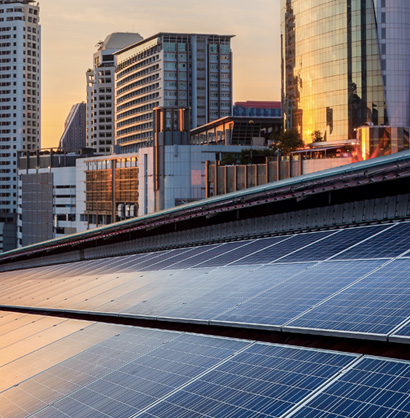Introduction: Considering the numerous benefits of solar energy, you may be contemplating whether installing solar panels is a suitable choice for your home or business. Making an informed decision requires assessing several factors that influence the feasibility and effectiveness of a solar power system. In this blog, we will guide you through the key considerations to help you determine whether installing solar panels is the right choice for you.
Location and Sunlight Availability: The amount of sunlight your location receives plays a crucial role in the efficiency of solar panels. Ideally, your property should have access to direct sunlight for the majority of the day. Observe your property’s exposure to sunlight throughout the year, taking note of any obstructions like trees or nearby buildings that may cast shadows on your roof. If your location receives ample sunlight, it is a good indication that solar panels could be a viable option.
Roof Suitability: Evaluate the suitability of your roof for solar panel installation. Assess its age, condition, orientation, and angle. Typically, south-facing roofs with a slope between 15 and 40 degrees are considered ideal for solar panels, as they maximize sun exposure. Additionally, ensure that your roof can handle the weight of solar panels and that there is sufficient space to accommodate the required number of panels.
Energy Consumption and Cost Analysis: Examine your energy consumption patterns and electricity bills to determine the potential financial benefits of installing solar panels. A higher electricity usage usually translates into greater savings from solar power. Calculate your payback period—the time it takes for the savings from solar energy to equal or exceed the initial investment. Consider factors such as local electricity rates, available incentives, and financing options to assess the long-term cost-effectiveness of solar panels.
Local Regulations and Incentives: Research local regulations, permits, and incentives related to solar panel installations in your area. Some governments provide tax credits, rebates, or other financial incentives to promote solar energy adoption. Understand the net metering policies, which allow you to sell excess electricity back to the grid, potentially offsetting your energy costs further. Familiarize yourself with the requirements and procedures to ensure a smooth installation process.
Environmental Impact: Installing solar panels is an environmentally friendly choice, but it’s worth considering the specific environmental conditions in your area. If you live in an area with frequent cloud cover or limited sunlight, the solar panels’ efficiency may be reduced, affecting the overall environmental benefit. However, advancements in solar technology have improved the efficiency of panels under varying weather conditions, so consult with solar experts to evaluate the potential impact in your region.
Consultation with Solar Professionals: Engage with reputable solar energy providers or professionals to assess the feasibility and potential benefits of solar panel installation for your property. They can perform a detailed analysis of your energy needs, evaluate your location, and provide customized recommendations. Their expertise will help you make an informed decision and ensure an efficient and effective solar energy system.
Conclusion: Deciding whether to install solar panels requires careful evaluation of factors such as location, roof suitability, energy consumption, costs, regulations, and environmental impact. By considering these aspects and consulting with solar professionals, you can determine if solar panel installation is a practical and beneficial choice for your specific circumstances. Embracing solar energy can lead to significant cost savings, energy independence, and a reduced environmental footprint, contributing to a sustainable future.

